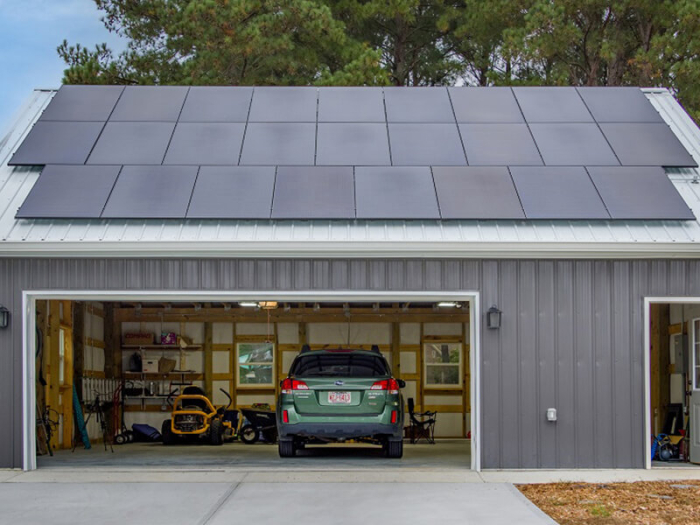Energy
Hanwha Q Cells eyes solar power business diversification
It is developing new revenue streams as Chinese products' price competitiveness has hit the firm's earnings
By May 24, 2024 (Gmt+09:00)
1
Min read
Most Read
Samsung steps up AR race with advanced microdisplay for smart glasses


When in S. Korea, it’s a ritual: Foreigners make stops at CU, GS25, 7-Eleven


Maybe Happy Ending: A robot love story that rewrote Broadway playbook


NPS yet to schedule external manager selection; PE firms’ fundraising woes deepen


US auto parts tariffs take effect; Korea avoids heavy hit



Hanwha Q Cells Co., a solar power unit of South Korean chemicals-to-defense conglomerate Hanwha Group, is striving for revenue stream diversification as intensifying price competition with Chinese solar modules has hit the Korean firm’s earnings.
The solar module maker is set to launch a package of home energy storage solutions Q.Home Hub in the US in the second half of this year, industry sources said on Friday. The package provides solar energy panels, inverters, energy storage systems and repair maintenance services.
Hanwha Q Cells is considering expanding into the engineering, procurement and construction (EPC) sector given soaring industry demand for large-scale solar power generation and energy transition.
The company will also increase financial services such as lending capital to solar panel buyers. The company plans to raise its loan limit via Enfin, its 100% subsidiary and residential solar panel maker in the US. Enfin will boost its third-party ownership (TPO) service, which leases and installs home solar energy systems.
Hanwha Q Cells aims to appeal to customers by offering convenience and quality products and services as Chinese products are increasing their global solar module market share with price competitiveness.
The Hanwha Group unit posted an 18.7 billion won ($13.7 million) operating loss for the first quarter of this year.
The company aims to swing to the black in the near term although its earnings are expected to benefit from US import taxes on Chinese solar cells, which will double to 50% this year.
Write to Sang Hoon Sung at uphoon@hankyung.com
Jihyun Kim edited this article.
More to Read
-

-
 EnergyHanwha Q Cells expects windfall gain from Chinese rivals’ woes
EnergyHanwha Q Cells expects windfall gain from Chinese rivals’ woesAug 21, 2023 (Gmt+09:00)
2 Min read -
 EnergyHanwha Q Cells sweeps global solar energy industry awards
EnergyHanwha Q Cells sweeps global solar energy industry awardsJun 08, 2023 (Gmt+09:00)
1 Min read -
 EnergyKorea's Hanwha Q Cells halts litigation against Chinese module maker
EnergyKorea's Hanwha Q Cells halts litigation against Chinese module makerFeb 17, 2023 (Gmt+09:00)
1 Min read -
 EnergyHanwha Q Cells to sell 7 US battery ESS projects to Spain’s Acciona Energia
EnergyHanwha Q Cells to sell 7 US battery ESS projects to Spain’s Acciona EnergiaDec 14, 2022 (Gmt+09:00)
1 Min read
Comment 0
LOG IN


